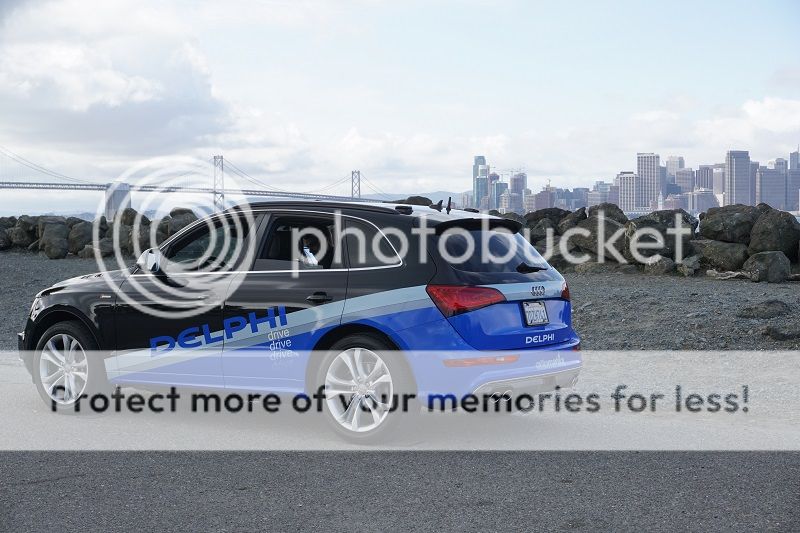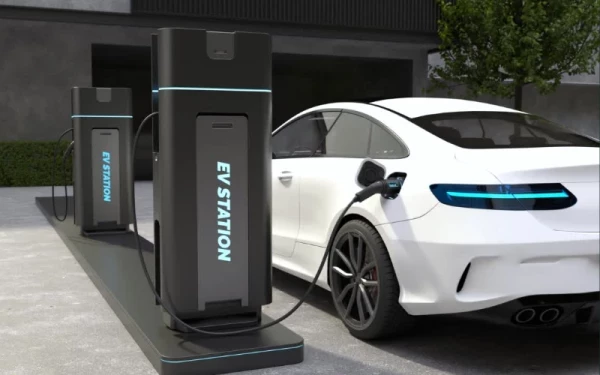Audi and Delphi team up to deliver next generation autopilot
Add bookmarkAudi has released more information about its central driver assistance controller (zFAS), and revealed that Delphi Automotive has been awarded the contract to start commercial production of the ultra-compact system which is no more than the size of a tablet computer. The news comes just a few days after Delphi completed an autonomous coast-to-coast journey across America in an Audi Q5 packed with self-driving technology.

Source: www.audi.co.uk & www.audi-press.co.uk
Audi say the zFAS controller is the core of future systems for autonomous driving currently under development by the company. At the moment, the majority of driver assistance systems are managed by separate control elements. But with the zFAS controller, Audi aims to be the first manufacturer to implement these functions into a single, central domain architecture.
Audi has taken a holistic approach to the development of the controller, consolidating the complete portfolio of functions, sensors, electronic hardware and software architecture into a central system. A number of technology companies were involved in the collaborative development of the controller, but it was Delphi Automotive that was awarded the contract as the future system supplier for the zFAS board.

Source: www.audi.co.uk & www.audi-press.co.uk
Under the direction of Audi AG, a team of specialist TTTech, Mobileye, nVidia, and Delphi jointly developed the various hardware and software components. The zFAS board is equipped with both the EyeQ3 mobile processor from Mobileye, and the new Tegra K1from nVidia. This gives the board enough computing power, says Audi, to equal the entire electronic architecture of today’s Audi A4.
The aim of the technology is to more quickly compute the information provided by the various sensors to efficiently control driver assistance systems. Data is gathered from an array of sources such as near-field ultra-sonic sensors, a front-facing camera with a range of up to 250 metres, rear radar sensors for traffic monitoring, top view cameras, a front-facing laser scanner with a range of 80 metres, and a wide-angle front-facing camera for object recognition.
The zFAS unit, when in production, will be able to compute the data and control the vehicle’s systems to drive autonomously in real-time. It will also be the first time that all of the information gathered from sensing equipment will be available in a central location for use by each of the driver assistance systems. To further the development of autonomous driving, Audi says it is also working with other leading suppliers such as Bosch, Continental, Valeo and Delphi on the sensors and actuating elements, such as braking and steering systems. The objective is to develop common standards and offer customers modern driver assistance systems for greater safety, comfort and convenience on the road to fully automated driving.
Delphi Drive
Delphi has been heavily involved in the development of the zFAS controller, and the news that it had been selected as the future supplier of the system came shortly after the technology company completed a coast-to-coast journey across the US in an automated Audi Q5.

Source: Delphi
The Q5 was equipped with a variety of autonomous technologies either in development at Delphi, or already being produced by the company. The systems used on the vehicle included radar and camera monitoring systems, vehicle-to-vehicle and vehicle-to-X communication systems, Traffic jam assist, Automated highway pilot with lane change, automated urban pilot, and automated parking and valet.
The Q5 started its journey close to the Golden Gate Bridge in San Fransisco, and travelled almost 3,400 miles over nine days before arriving in New York. The test drive was hailed as a success by Delphi engineers, as an impressive 99% of the journey was covered in autonomous mode. The vehicle navigated itself through mountains, heat and traffic jams, and successfully negotiated a variety of unexpected road conditions such as construction zones, traffic circles, tunnels and bridges. It was also able to navigate a path through complex road situations like four-way stops, merging on the highway, and manoeuvring around cyclists.
Bringing the Technology to Market
Audi has stated that the modular design of the zFAS controller means it is flexible, scalable and future-proof in every way. While the information gathered from Delphi’s automated drive will be analysed to further advance research and development, not only for the controller but also for its associated sensors and systems.
Audi also has plans in the near future to allow piloted cars to learn continuously as they drive via Audi connect. The data computed by the zFAS controller will be communicated via mobile phone networks (via LTE where available) to an IT backend in the cloud. The data will be processed using algorithms for machine learning and artificial intelligence, and information is then sent back to the car. This will enable the zFAS board to continually extend its capabilities and ‘learn’ to master complex situations increasingly better.
Sources:






















